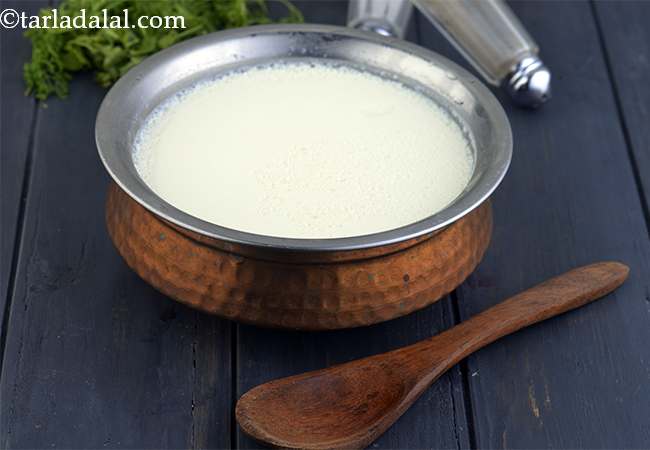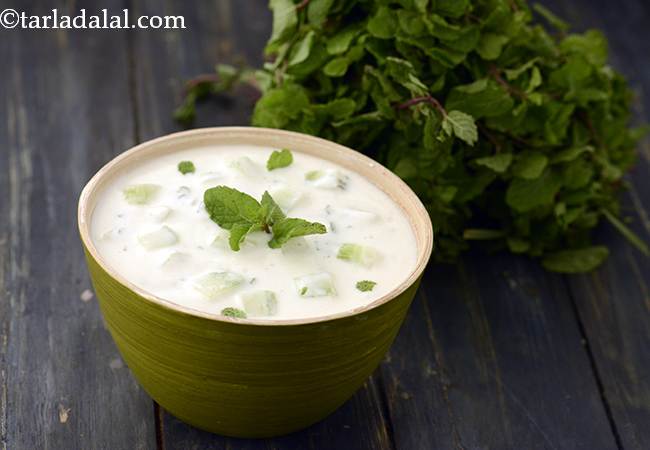Click here to view Bajra Khichdi recipe. When one thinks of homely food, khichdi is the first option that comes to mind. A wholesome khichdi can warm your heart and make you comfortable after a long and busy day, and this sumptuous Bajra Khichdi is sure to live up to your expectations. Rajasthanis use more of millets like bajra than rice, and therefore recipes like khichdi that are typically made with rice in other parts of the country are made differently in Rajasthan. Bajra Khichdi, with its creamy consistency and mild flavours, is both comforting and satiating and makes a lovely meal when served with a cup of curds or raita. If you are looking for something more elaborate, feel free to add some spices to the tempering, or maybe even throw in some chopped veggies into the cooker along with the bajra and moong dal.
Is Bajra Khichdi healthy?
Yes, this is healthy. But restrictions apply to some.
Let's understand the Ingredients.
What's good.
Bajra flour : Bajra flour is high in protein and is a complete protein for vegetarians when combined with dal. So as a Vegetarian, include bajra in your diet. Bajra is a great option for those on a gluten free diet. Bajra is rich in Magnesium which improves insulin response by lowering insulin resistance which is good for Diabetics and healthy heart but to be had in restricted quantity and had with low fat curds or raita to minimise the carb impact. See here for the 18 benefits of bajra flour and why you should have it.
Yellow Moong Dal : The fibre (4.1 g in ¼ cup) present in yellow moong dal prevents the deposition of bad cholesterol (LDL) in the arteries which promotes a healthy heart in turn. Packed with nutrients like zinc (1.4 mg), protein (12.2 mg) and iron (1.95 mg), yellow moong dal helps to maintain the elasticity of your skin and help to keep it moist. Fiber, potassium and magnesium from yellow moong dal will work together to regulate blood pressure and soothe the nerves and is diabetic friendly. See here for details of 7 amazing benefits of yellow moong dal.
Ghee : Other than calories and fats, the only nutrients that ghee is rich in are the vitamins – all of which are fat-soluble. All the 3 vitamins (Vitamin A, Vitamin E and Vitamin K) are antioxidants which have a role in removing free radicals from the body and protecting our cell as well as help in maintaining skin health and glow. Ghee is an excellent, high-quality selection medium of cooking because of its high smoke point. As compared to most oils and butter, ghee can handle a smoke point of 230°C, 450°F, thus its less prone to oxidant and destruction of nutrients. Yes, ghee does contain cholesterol, but some amount of cholesterol is needed by the body. Cholesterol has some functions to play too. It is necessary for hormone production, brain function, cell health and lubricating the joints. It is, in reality, a high quality fat for the body and brain. Ghee is loaded with fats but that’s medium chain fatty acids (MCT) which aid in weight loss. Ghee is healthy for daibetics in small amounts and you need to check your fat intake at the same time. Learn to easily make your ghee at home which is free of preservatives. See benefits of ghee.
Can diabetics, heart patients and over weight individuals have Bajra Khichdi ?
Yes, this recipe is good for diabetics, heart and weight loss. Bajra is rich in Magnesium which improves insulin response by lowering insulin resistance which is good for Diabetics and healthy heart but to be had in restricted quantity and had with low fat curds or raita to minimise the carb impact. The fibre (4.1 g in ¼ cup) present in yellow moong dal prevents the deposition of bad cholesterol (LDL) in the arteries which promotes a healthy heart in turn.
What is a healthy accompaniment to this Khichdi?
We suggest you pair it with homemade curds using cows milk or low fat curds.

Basic Homemade Curd, Dahi Or Yogurt Using Cow's Milk
Bajra Khichdi also taste very good with lauki pudine ka raita, mixed veggie raita, low calorie spinach raita or a cucumber and pudina raita.

Cucumber and Pudina Raita
Can healthy individuals have Bajra Khichdi ?
Yes.
Can Senior Citizens have Bajra Khichdi ?
Rajasthani Style Bajra Khichdi – Soft Food for Senior Citizen. This khichdi is a great source of energy, protein, fats and iron… all the nutrients required by senior citizens. The additional advantage of this delicacy is that it’s a one dish meal which treasures all these nutrients in one go. Moreover it is easy to chew as compared to rotis and parathas. If you wish to have an extra soft Bajra khichdi, pressure cook for 2 more whistles. Serve Rajasthani Style Bajra Khichdi for dinner with curd and add on 11.3 g of protein and 3.5 g of iron to your diet.
Bajra Khichdi is high in
1. Vitamin B1 : Vitamin B1 protects nerves, helps in carbohydrate metabolism, prevents heart diseases and helps produce red blood cells.
2. Folic Acid : Folic acid is an essential vitamin required throughout pregnancy.
3. Phosphorous : Phosphorous works closely with calcium to build bones.
4. Magnesium : Magnesium is required for formation of bones and teeth. helps in the metabolism of calcium and potassium.
5. Zinc : Zinc is involved in collagen synthesis and this helps repair skin and helps build immunity.
6. Iron : Iron is essential in the chemical reactions that produce energy from foods. Eat more greens and garden cress seeds to prevent you from being anaemic. Here are the top 7 sources of iron rich foods.
7. Protein : Protein is required for the managing the wear and tear of all cells of the body.
8. Fiber : Dietary fiber reduce the risk of heart disease, prevent the spike in blood sugar levels and hence super for diabetics. Consume more fruits, vegetables, moong, oats, matki, whole grains.
Note : a recipe is deemed high in a Vitamin or mineral if it meets 20% and above the recommended daily allowance based on a 2,000 calorie diet.
How to burn 252 calories that come from one serving of Bajra Khichdi?
Walking (6 kmph) = 1 hr 16 mins
Running (11 kmph) = 25 mins
Cycling (30 kmph) = 34 mins
Swimming (2 kmph) = 43 mins
Note: These values are approximate and calorie burning differs in each individual.